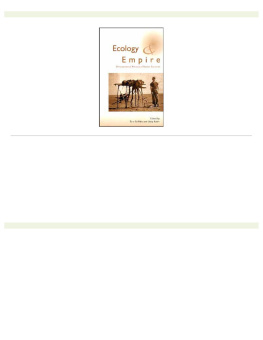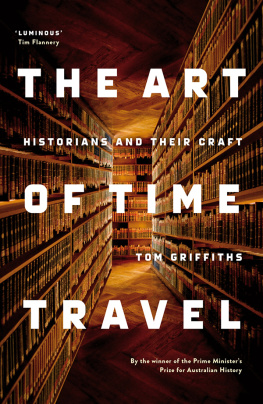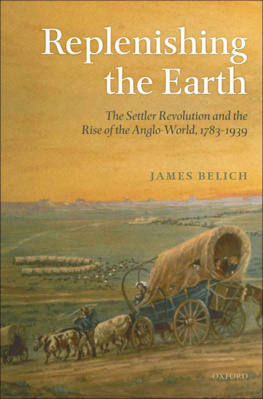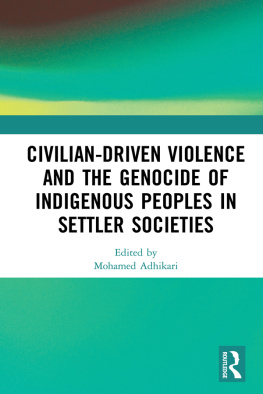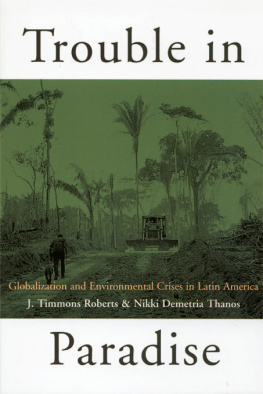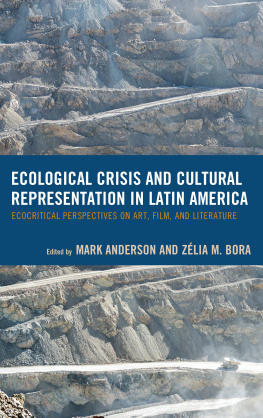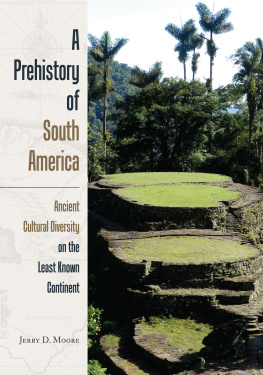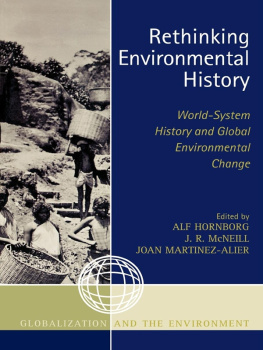
cover
cover
title:
Ecology and Empire : Environmental History of Settler
Societies
author:
Robin, Libby
publisher:
Edinburgh University Press
isbn10 | asin:
1853311995
print isbn13:
9781853311994
ebook isbn13:
9780585193120
language:
English
subject
Ecology--Europe--Colonies--History, Land settlement-
Europe--Colonies--History, Europe--Colonies--History.
publication date:
1997
lcc:
QH135.H38 1997eb
ddc:
577/.09
subject:
Ecology--Europe--Colonies--History, Land settlement-
Europe--Colonies--History, Europe--Colonies--History.
cover
page_i
page_i
Page i
Ecology and Empire
Environmental History of Settler Societies
Edited by
Tom Griffiths And Libby Robin
KEELEUNIVERSITYPRESS
page_i

page_ii
page_ii
Page ii
in this edition, Keele University Press
22 George Square, Edinburgh
Typeset in Linotype Stempel Garamond by
Carnegie Publishing, Preston and
printed and bound in Great Britain
A CIP record for this book is available
from the British Library
ISBN I 85331 199 5
The right of the contributors to be identified
as the authors of this work has been asserted
in accordance with the
Copyright, Designs and Patents Act (1988)
The publication of this book was assisted by
Australians Studying Abroad and Qantas Airways Limited
The publications programme of the Sir Robert Menzies Centre
for Australian Studies is sponsored by BTR plc.
page_ii

page_iii
page_iii
Page iii
ACKNOWLEDGEMENTS
This book grew out of a co-operative project that was initiated while the editors were working at the Sir Robert Menzies Centre for Australian Studies in London. We thank the Menzies Centre, its former and current Heads, Professors Brian Matthews and Carl Bridge, and also the staff of the Institute of Commonwealth Studies for their support. Corporate sponsorship from Australians Studying Abroad and Qantas Airways Limited was greatly appreciated.
We are grateful to our publishers for their enthusiastic support for the project from its inception, especially Richard Purslow, Nicola Carr and Nicola Pike. We would also like to thank Rodney Mace, Edel Mahony, Luisa Prcopo and Alan Platt.
The greatest pleasure in editing this book has been in working with our contributors, all of whom have brought insight, energy and enthusiasm to the project.
TOM GRIFFITHS AND LIBBY ROBIN
page_iii
page_v
page_v
Page v
CONTENTS
Introduction
Ecology and Empire: Towards an Australian History of the World Tom Griffiths
Part I
Ecologies of Invasion
Chapter 1
Frontiers of Fire
Stephen J. Pyne
Chapter 2
The Nature of Australia
Eric Rolls
Chapter 3
The Fate of Empire in Low and High-Energy Ecosystems
Timothy F. Flannery
Part 2
The Empire of Science
Chapter 4
Ecology: A Science of Empire?
Libby Robin
Chapter 5
Ecology and Environmentalism in the Anglo Settler Colonies
Thomas R Dunlap
Chapter 6
Vets, Viruses and Environmentalism at the Cape
William Beinart
Chapter 7
Enterprise and Dependency: Water Management in Australia
J. M. Powell
Part 3
Nature and Nation
Chapter 8
Nationhood and National Parks: Comparative Examples from the Post-Imperial Experience
Jane Carruthers
Chapter 9
Scotland in South Africa: John Croumbie Brown and the Roots of Settler Environmentalism
Richard Grove
Chapter 10
page_v
Mawson of the Antarctic, Flynn of the Inland: Progressive Heroes on Australia's Ecological Frontiers
Brigid Hains
Part 4
Economy and Ecology
Chapter 11
Ecology, Imperialism and Deforestation
Michael Williams
Chapter 12
Global Developments and Latin American Environments
Elinor G. K. Melville
Chapter 13
The Transvaal Beef Frontier: Environment, Markets and the Ideology of Development, 1902-1942
Shaun Milton
page_v
page_vi
page_vi
Page vi
Part 5
Comparing Settler Societies
Chapter 14
Empire and the Ecological Apocalypse: The Historiography of the Imperial Environment
John M. Mackenzie
Chapter 15
Empires and Ecologies: Reflections on Environmental History
David Lowenthal
Select Bibliography
Notes on Contributors
Index
page_vi
page_1
page_1
Page 1
INTRODUCTION
ECOLOGY AND EMPIRE:
TOWARDS AN AUSTRALIAN HISTORY OF THE WORLD
Tom Griffiths
'Ecology' and 'empire' are words that suggest very different dimensions of life on earth; at times they might appear to be opposites. One is natural, the other social; one is local and specific to place, the other is geographically ambitious; one is often seen to be scientific, amenable to laws and exclusive of humanity; the other is political, quixotic and historical. Brought together under the scrutiny of scholarship, these worlds and world-views make for creative friction. But 'ecology' and 'empire' also had a real relationship. They forged a historical partnership of great power - and one which, particularly in the last 500 years, radically changed human and natural history across the globe.
When, in 1986, the American historian Alfred W. Crosby wrote his important book, Ecological Imperialism, which built on his earlier The Columbian Exchange (1972), he threw those words together in his title and enjoyed the perversity of their pairing, the cheeky conjunction of apparent innocence and power. 1 His book described the biological expansion of Europe and saw humans as a species as well as political beings. That is also the aim of this collection, which acknowledges the inspiration of Crosby's work and is motivated by the conviction that environmental change has been, until recently, 'an unexplored aspect of colonialism.2 This book looks back at European expansion from the so-called colonized 'peripheries', the settler societies, and uses one of those societies
- Australia - to shed new light on comparative environmental history. Crosby himself chose New Zealand as a case-study for his analysis of the intersections of ecology and empire; here we draw particularly on the histories of the United States, South Africa and Latin America, as well as Australia. This introductory chapter scrutinizes changing interpretations of ecological imperialism in the Australian setting to illustrate the way in which environmental histories of the 'edges' of empire are destabilizing traditional narratives of world history. The chapter then discusses concepts of 'settler societies', argues the value of comparing their environmental frontiers and histories, and, finally, introduces the five sections of the book.
page_1
page_2
page_2
Page 2
Ecological Imperialism and Australia
Alfred Crosby's book described how Europeans established themselves securely in far-flung but temperate countries and made them into 'neo-Europes': the United States, Canada, Australia, New Zealand, Argentina and Uruguay. These were the 'lands of demographic takeover', those countries where Europeans quickly became numerically dominant over the indigenous peoples, amounting to between 75 and nearly 100 per cent of the populations. 3 Why, asked Crosby, were Europeans able to establish such demographic dominance so quickly and so far from home? The answer, he argued, lay in the domesticated animals, pests, pathogens and weeds that the humans carried with them, an awesome accompaniment of colonizers that the settlers sometimes consciously nurtured and marshalled, but that often constituted an incidental and discounted dimension of imperialism. In Crosby's memorable words: European immigrants did not arrive in the New World alone, but were accompanied by
Next page
